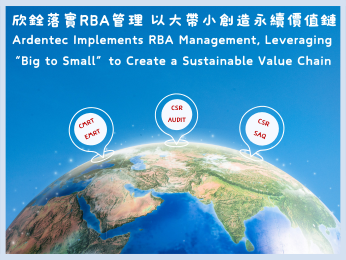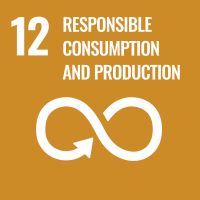Ardentec Implements RBA Management, Leveraging “Big to Small” to Create a Sustainable Value Chain

|
Ardentec emphasizes the implementation of corporate social responsibility (CSR) performance for both itself and its supply chain. After introducing RBA in 2018, it has continuously used the RBA VAP as its CSR management framework, covering aspects of A. Labor, B. Health and Safety, C. Environment, D. Ethics, and E. Management Systems. The company conducts annual reviews and internal audits to check compliance, ensuring the implementation of CSR standards. Ardentec headquarters not only requires itself to meet high standards of RBA standard compliance but also practices the spirit of “big to small” by promoting RBA standards to its subsidiaries. The Singapore subsidiary, Nanjing subsidiary, and GIGA subsidiary also achieved RBA VAP Platinum-level full scores of 200 in 2025. Regarding CSR management of suppliers, in 2025, headquarters, Singapore, and Nanjing subsidiaries conducted conflict minerals/extended minerals due diligence (CMRT/EMRT) for suppliers within the defined scope, sending surveys to a total of 31 suppliers; they also issued self-assessment questionnaires to 59 suppliers, achieving a 100% completion rate. At the same time, Ardentec headquarters, Singapore subsidiary, Nanjing subsidiary, and GIGA subsidiary also carried out on-site CSR audits for on-site service suppliers, labor agencies, and key suppliers, examining the implementation effectiveness and requiring continuous improvement to align with the spirit of sustainability.
|
|
|






